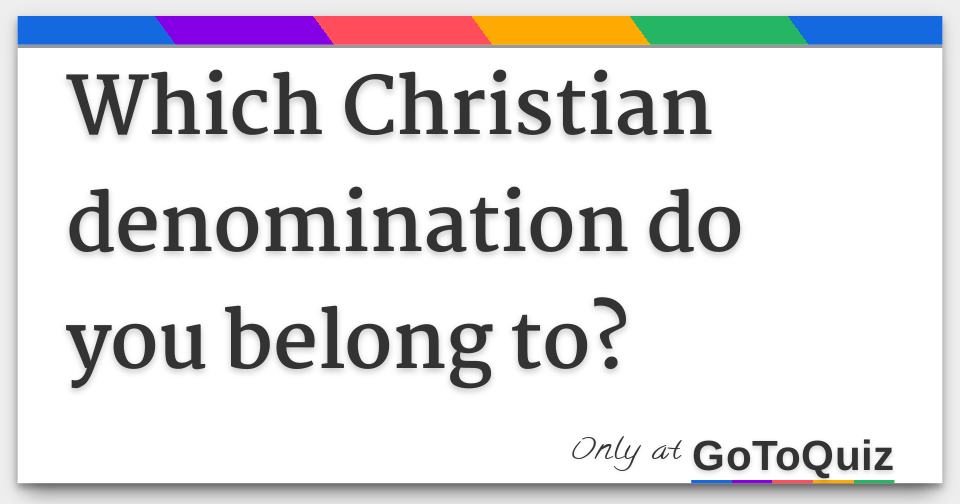Puritan 79%
Baptist 77%
Calvinist 74%
Methodist 64%
Pentecostal 50%
Lutheran 45%
Episcopalian 12%
Restoration 8%
Catholics 0%
I attend Baptist (w/ a friend) & RCA (family) churches. I'm not really sure what "Puritan" means in this context, but based off the description the quiz gave me, it's kind of like Calvinism.
So my 3 highest results match the churches I attend.
That's a good question. I would label both "Puritan" and "Calvinist" as Reformed (i.e., within Calvin's school of thought); I don't know what distinction the quiz-writer has in mind. Unless it's a distinction between Reformed in England/New England vs Reformed in Continental Europe, but that's a lot of hair-splitting for an online quiz.
It seems like it's church set-up. Puritans believe in less centralized heirarchy than Calvinist.
"You adhere to the reformed theologies that stemmed from John Calvin in the sixteenth century. The idea of
predestination is central to your beliefs. You believe that not only is salvation predestined by God, this
election is unconditional, and cannot be either resisted or lost. As opposed to the Arminian belief in free will, Calvinists stress that m
en are born as sinners (total depravity), and that they
do not have the ability to turn from sin by themselves (sovereign grace). As far as church organisation is concerned, you believe in a
less centralised system than your mainstream Calvinist counterparts, although historically some Puritans did support a Presbyterian polity. However,
Puritans stress the importance of religious freedom, with notable Purtans such as Oliver Cromwell being tolerant even to polygamist groups such as Anabaptists."
This is the description of Puritan I got.



